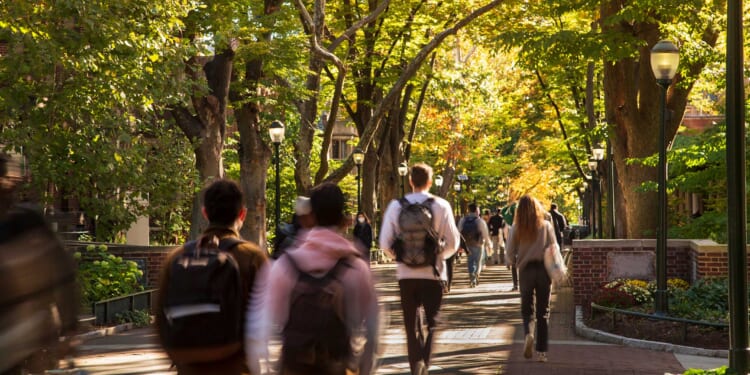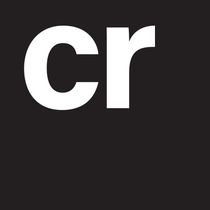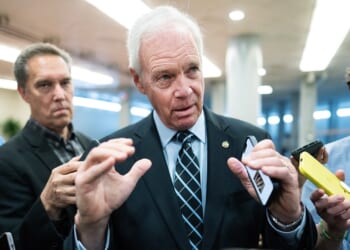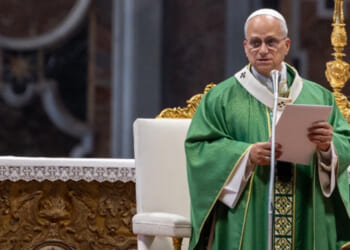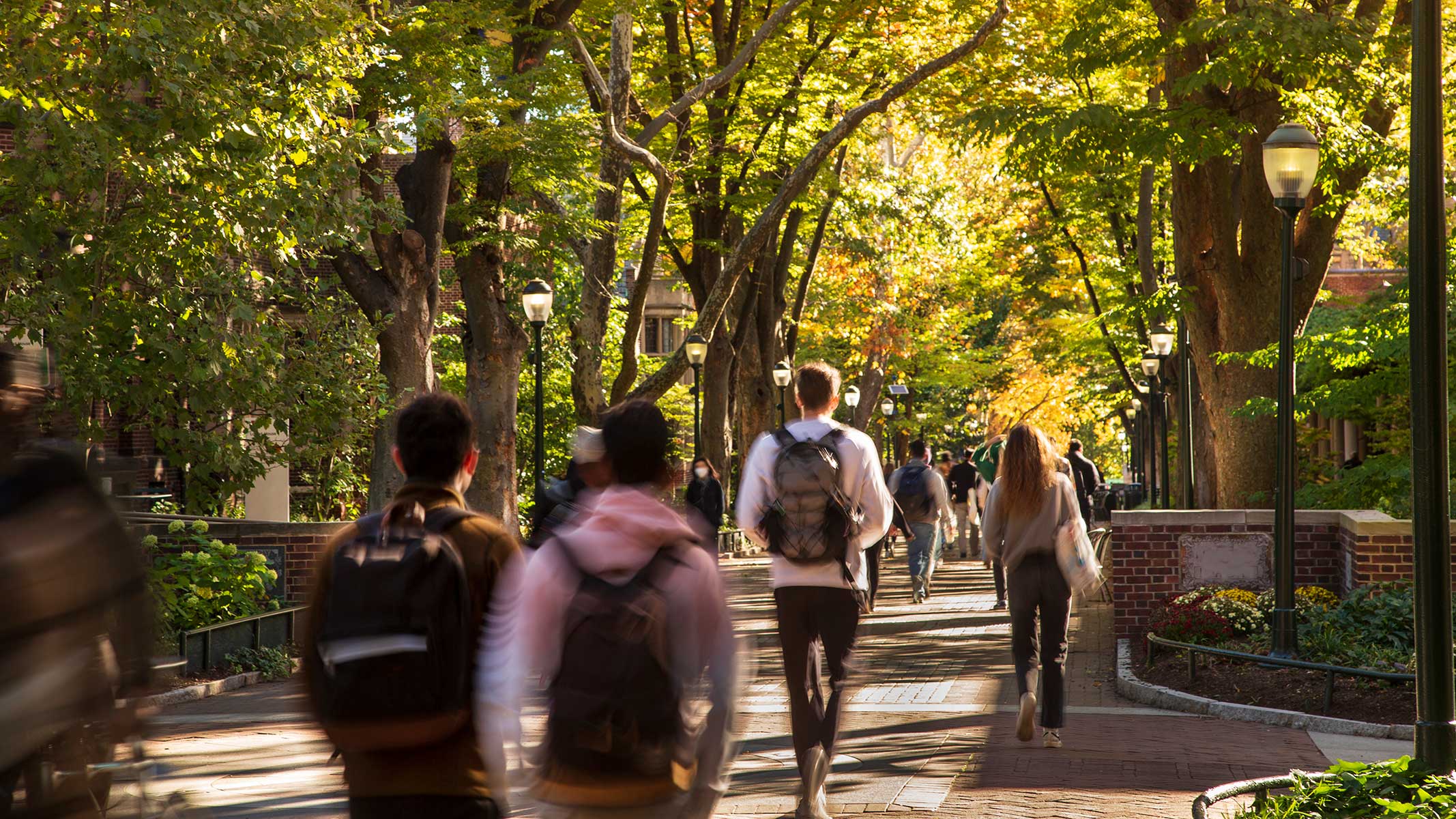
How can students know which colleges will give them the best educational value for their dollar? Renu Mukherjee, Neetu Arnold, and Rafael Mangual explore City Journal’s newly released College Rankings—and what makes them so different from other college-assessment guides. They discuss the experiences of conservative students on campus, the importance of ideological diversity, how social pressures shape student life, and the tension between meritocracy and identity in admissions.
Finally, a reason to check your email.
Sign up for our free newsletter today.
Audio Transcript
Rafael Mangual: Hello and welcome to another episode of the City Journal Podcast. My name is Rafael Mangual and I’m so happy to be your host today. I am joined by my two brilliant colleagues. have Neetu Arnold and Renu Mukherjee. Welcome to the show, ladies.
Neetu Arnold: Hi, hope you’re doing well.
Rafael Mangual: I’m doing wonderfully, wonderfully. So excited that you guys are joining us because for those of you who are watching and don’t know, Neetu and Renu do amazing work on higher education specifically. And I wanted to bring you guys on today because I really wanted to talk about the fact that City Journal did something kind of crazy. We released our own college rankings. So we’re now competing with US News and World Reports and Princeton Review and all of these other great institutions. And you guys were very intimately involved in that project. And so I wanted to bring you on just to talk a little bit about those rankings, why we did them in the broader state of higher education today. So why don’t you, Neetu, start just by telling us a little bit about the rankings themselves, what makes them notable, what makes them different from some of the stuff that’s already out there.
Neetu Arnold: I mean, I think it’s great that City Journal released its own rankings because, you know, we’ve seen time and time again in polls that there’s declining trust in higher education and those concerns often fall along two lines, costs and classroom content. Traditional college rankings are able to capture the costs, but they’re not measuring whether students are getting a good education and that’s where the City Journal college rankings is filling that gap. We’re looking at issues like the free speech environment, curricular rigor, meritocracy on campus, and I think all those variables are important to give us a fuller picture.
Rafael Mangual: Yeah, mean, Renu, when I was sort of reading the release of the City Journal rankings, one of the sentences that really jumped out at me and John Sailor’s write-up of it was that there was a mismatch between reputation and reality. So many of the college ranking systems that we see consistently have, you know, the same handful of schools ranked in their top 10. And we just kind of accept as a society that this is, you know, the educational elite. But in reality, the experience on the ground in a lot of those institutions doesn’t quite fit with that narrative. And so just talk to me a little bit about, you know, sort of what exactly is different, because I think a lot of people will be surprised when they see the top 10 of our rankings, right? I mean, you know, these rankings are led by the University of Florida, not Harvard, not Yale, not Cornell or Stanford, but the University of Florida. And so, you know, I just think that’s really interesting for people to learn a little bit more about.
Renu Mukherjee: Well, Ralph, like to your point, families can now evaluate what they care more about, the so-called prestigious reputation of institutions or the actual education and experience that their children are going to get when attending a college or a university, which is why, you know, University of Florida is number one because City Journal’s ranking system prioritizes an environment that’s open to all sorts of student speech, that’s open to all sort of political and other forms of organization that’s also outside of education, simply fun. We forget that so much of the quintessential American college experience is shockingly not related to academics, but also just what it feels like to be on campus. Is there Greek life? Are students constantly being bombarded by left-wing activism on their campuses? These are all things that the City Journal rankings take into account in different ways. And so when families consult them, they’re really going to get a feel for what it’s going to be like to be on the University of Florida’s campus, for example, which, like you said, is number one in our ranking system, as opposed to being on Harvard’s campus, which, according to US News and World Report, has not left the top three of best colleges in America for years and years, but is in the 30s in City Journal’s ranking list. And so it’s kind of, you know, families will finally be able to care more about what it actually feels like to be on one of America’s college campuses.
Rafael Mangual: Yeah, I want to talk a little bit about just what that feeling is, right? Because I was in college a very long time ago, so my memories are somewhat faded. But, you know, I think one of the things that’s sort of a consistent issue of concern for a lot of people who I speak to who are sort of just out of undergraduate institutions or are still in an undergraduate institution, I mean, the number one issue that they sort of raise when I ask them about their experiences is that they feel like they are just outnumbered in every aspect of campus life with respect to their leanings. Obviously I interact with lot of conservative and libertarian students. They don’t feel like they have a home in the places where they go to school. In fact, a lot of them go to school sort of understanding that they have sacrificed any real sense of community or belonging because they are chasing that sort of prestige angle knowing that they are going to be in a very, very small minority as people who do not sort of buy into kind of liberal orthodoxy. And, you know, I think a little bit about my experience as an undergrad. It’s a bit different. I was not particularly engaged until about halfway through my undergraduate studies and by that point, by virtue of probably some somewhat toxic personality traits, I didn’t really care very much about being a her in the minority. I’m a pugilist at heart and so I was perfectly happy to have it out in my classrooms. But when you see some of these sort of faculty ratios in terms of conservatives to liberals or even sort of moderates to liberals, what you tend to see is that these educational institutions have essentially been captured by the far left. And that speaks to what the experience is going to be like. And so I wonder if you guys can just talk a little bit about what it was like for you all, given that you went to college a lot more recently than I did.
Neetu Arnold: Well, Ralph, I share some of your experiences. When I started college, I wasn’t really involved in politics. I didn’t really pay attention to politics. I always saw it as just a bunch of people yelling at each other. And maybe to a certain extent, that might be true today, too. But I wasn’t aware of the costs going in that even people who are conservative or libertarians are aware of. And so as I was developing my views on college, and I went to Cornell University, which is ranked 61 in our rankings, I didn’t know what the costs would be until I developed my views and I quickly learned that different perspectives were not welcome. This was especially bad when I was a resident advisor. I think that particular part of college is very ideologically captured and we would have these training sessions where we would read The New Jim Crow, I believe that’s Michelle Alexander, but then we wouldn’t read a Thomas Sowell. And so I just felt like I wasn’t getting all sorts of perspectives. You know, one thing that I’ve learned when I speak to college students today is that there’s a lot of social pressure to conform. And that’s why I think it’s important to have pluralism among the student body, which is something that our rankings capture.
Rafael Mangual: Yeah, I think there’s absolutely a ton of social pressure that comes with being a conservative on an elite college campus in America today, right, where you are just outnumbered 10, 15, maybe even 100 to one. But one of the other problems that arises, I think, when you sort of have a lack of pluralism on a campus is that it really undermines the educational pursuit in the eyes of the students themselves. I just think about, you know, sort of my own experience. You know, when I kind of discovered the new right and, you know, thinkers like Thomas Sowell, who you mentioned, who I discovered through watching old episodes of William F. Buckley’s Firing Line, which, you know, I hadn’t known existed and, you know, came across all of these thinkers that I found fascinating. I found their work, you know, thoughtful and reflective of a really deep expertise that deserved a hearing in the classrooms that I was paying money to be in. And I realized that I was getting a better education outside of my university lecture halls than I was ever getting inside. It kind of, you know, put a real chip on my shoulder. It made me feel like the entire experience was really just performative. Like all I was doing was just pursuing, you know, a piece of paper that would allow me to take the next step in life as opposed to actually engaging in a true educational experience. And, you know, I think that a lot of students likely feel that way. It’s hard to really respect the process when you realize that the process is sort of rigged in the sense that it, you know, basically expels an entire universe of thought that is absolutely deserving of a hearing. And Renu, I know you’ve just given so much deep thought to these issues through the work that you’ve done, not just here at the Manhattan Institute, but also as a PhD student. And I don’t know, do you think there’s something to that?
Renu Mukherjee: Totally. I think that there’s so much to learn outside of the classroom, particularly like you say, you know, there’s, we’re listening to Firing Line. Nowadays. I know, for example, we talk about how Ben Shapiro’s podcast, for example, has been a gateway for, you know, many now young conservatives, particularly young men who perhaps are not getting exposed to a diversity of ideological perspectives on their college campuses. Of course, this is what Charlie Kirk’s entire project with Turning Point was, you know, exposing students to different viewpoints. I will say, though, at the same time, I had a bit of a different experience in undergrad than both of you guys, simply because, well, one, I arrived at college. I went to Holy Cross in Worcester, Massachusetts, very much a leftist. I attended a New England preparatory high school, which was very much left-wing and was exposed to all sorts of views that, you know, are sort of the banner of the Democratic Party today, such as transgenderism, racial preferences, et cetera. And I was exposed to one professor who only told me after I graduated that he was very much a conservative, had done his PhD in political science at Claremont McKenna. And it was through taking his courses and going to his office hours that I was exposed to City Journal for the first time, to Heather Mac Donald, to your work Ralph, to Thomas Sowell, to different Supreme Court opinions written by Justice Scalia. And so, and he was a mentor to me throughout the entirety of my undergrad experience and inspired me and helped me apply to get a PhD in political science. And so, you know, these schools are very much, you know, riddled with leftist professors. Our colleague John Sailer writes about the scholar-activist pipeline. But something that our rankings prioritize is, you know, having faculty on campus that could be this sort of outlet for conservative students, for moderate students that could provide a different perspective. And so I think, like you say, there is a lot to be learned outside of the classroom, but at the same time, our rankings prioritize having different individuals on campus that can also provide that alternative perspective and education.
Rafael Mangual: I absolutely love that story and I wish I had one of my own. You know, I mean, when I became aware of the markers of the sort of ideological, you know, camp that my professors were in, if, you know, my experience was that if I showed myself to be on the other side, it was quickly written off or singled out as a combatant, right? And, you know, oftentimes that was unpleasant, but, you know, that wasn’t always the case. I think back to my first year of law school, I went to DePaul University in Chicago and my constitutional law professor later became the Solicitor General of Illinois, guy named David Franklin, super brilliant clerked for Ruth Bader Ginsburg on the Supreme Court, but very much on the progressive left. I think a day or two in, somehow I got outed as a Federalist Society guy within the class.
And so, you know, I would just get picked on for that, you know, entire class, right? In law school, a lot of professors will cold call. And, you know, there’s a whole world of commentary about how terrifying the experience is. I always enjoyed it. But, you know, if another student was asked, you know, to evaluate an argument and an opinion and they gave the kind of progressive line, it inevitably was followed by, “And Mr. Mangual might say,” and “Mr. Mangual,” you know, so I kind of went to that class sort of appreciating that I was going to get called out, in part because it made me engage with the work much more closely than I might otherwise have if I didn’t feel like I was under that kind of pressure. But at the same time, there wasn’t this sort of friendly effort to bring me in. And I think part of that just has to do with the fact that progressives don’t really, they don’t identify with that, right? I think when a conservative professor who is outnumbered sees a student with promise, you know, who might be on the margins or who might be persuadable or who at least might be open to engaging with some other ideas, they have, I think, an incentive to cultivate that in a way that progressive professors maybe don’t because they just, you know, they feel like they’ve already won. I don’t know. What do you think, Neetu?
Neetu Arnold: I there’s an incentive for them to change as of right now only because, or to even recognize that viewpoint diversity on campus is a problem because it doesn’t necessarily affect them and they would have to go out of their way to make that a priority. Now, one thing I would argue is that I think all professors should care about that issue right now because I think the declining public trust is a problem. If people don’t trust your universities, they’re not going to trust the information that’s coming out of them, what you’re teaching the students. And I still think universities have a place in our society to educate our citizens and to expect better. So I think they should care, but I don’t think there’s an incentive to them. And again, I think that’s why it’s important to show people what campuses are doing a good job, what are the model campuses, and hopefully our rankings can be a way for other universities to expect better, to do better and to improve themselves.
Rafael Mangual: No, I think, yeah, I mean, I think that’s right. I mean, and just going back to the rankings for a minute, I mean, one of the issues that sort of consistently arises in these debates about the state of higher education in America is the question of meritocracy, right? I mean, to what extent does that exist? And here we are, you know, about a year out from, you know, an incredibly momentous moment in the U.S. Supreme Court and the SFFA case, which, you know, found as unconstitutional and violative of the Civil Rights Act, a lot of the sort of preferential admissions programs that had been explicitly based on race for so many decades, including programs that had been upheld by the Supreme Court in prior years. And yet here we three are, you three brown think tank scholars who went through the higher education system. I just, you know, I’m curious as to what your experiences were with the sort of DEI apparatus and idea. I mean, for my part, I just kind of rejected it. I mentioned this on an earlier episode of the podcast about a week ago. I mean, for me, I just could not accept this idea that by virtue of my race and ethnicity, I was automatically considered someone who needed assistance. I just rejected that framework out of a sense of personal pride. But, for a lot of people, they just seemed to really kind of embrace this idea. And it always came across to me is somewhat performative. I remember, there was a guy went to college with and we actually took the LSAT together. We were in the same room and I recognized him about nine months or so later, he had posted on Facebook that he was so proud to be admitted to law school as a young Hispanic man. And I just remember thinking, what does the fact that you’re Hispanic have anything to do with it? Of course you’re getting admitted to law school, you did well on the LSAT, why can’t we just leave it at that? Why does it have to be, why do we need this sort of special status attached to such a superficial aspect of who we are that we had no control over. But the pull of that sort of apparatus, that framework, that sort of ideological component is so strong and so intoxicating for a lot of people. And I suspect that some of our listeners are wondering how the hell you all resisted it.
Renu Mukherjee: I think to be a conservative racial minority is probably the most unpopular position you could be in on a college campus today. I imagine you know, certainly 2016 onward, Neetu and I are in like the unique position that I find quite funny of, you know, on the one hand being pulled into this DEI bucket as, you know, quote, “brown.” Indian women. At the same time, know, Ralph, you brought up SFFA in the admissions context, you know, we are penalized for being Indians, for being Asians. And so it’s this very sort of it’s this interesting dichotomy that on the one hand, you know, we’re penalized in an admissions context. On the other hand, on campus, if we don’t join or sign on to the sort of DEI aggrieved minority framework, we’re referred to as “white-adjacent” or as though, you know, we are minorities or we’re betraying the larger rainbow coalition to use popular phrase of the Democratic Party. And so that’s, you know, there’s, true. It is truly hard to be a racial minority and a conservative on college campuses. I’ll briefly add from my own experience where I felt pushback the most, I did not become outspoken as a conservative probably until the end of my college career, when I finally couldn’t take it anymore. But my now husband, we met in college and he was from the moment he stepped foot on campus, a very outspoken, young conservative had grown up working on Republican campaigns all across New York and Long Island. And when we started dating, there was so much pushback shockingly from other women as to why I, who where I had not yet quote unquote, “come out” as a conservative myself would be comfortable dating a white Republican man. So there was a lot of animosity thrown my way simply over the fact that I decided to date someone who was of a different skin color and different political persuasion than me. And so yeah, I’m sure you two both must also feel that being a racial minority and a conservative, a Republican, it’s quite difficult.
Neetu Arnold: Renu, you were just choosing your oppression, right? Like, I identify with so much of what you say, you know, going back to when I was looking at different colleges and kind of figuring out what were the places that would be reach schools, what would be the places that I would most likely get into. I remember my parents sat me down and they wanted me to go to the best college that they could send me to, but there was always a reality. They told me, you your grades are good enough for an Asian or sorry, they’re good. They’re just not good enough for an Asian. You know, I had some stats that I thought would make me stand out in the admissions process. You know, I think some of you know this, but I don’t know if our listeners do, but I competed at the National Spelling Bee for four years. I made it into the top 10 my final two years. And this was when I was in middle school. I also did pageants, which is actually where I developed my interest in public affairs. I feel like I’ve lived kind of a lot of life and I just thought that maybe those stats would stand out in admissions. And I know it did because I remember my first week at Cornell during orientation week, the dean of our college was giving some stats on our class, what were the unique qualities among our peers? There was someone who was collecting bugs around the world and then they mentioned my spelling bee stat. Yeah, yeah, and like this was a college, I think we had two or 3000 students just in that college. So I’m like, okay, so clearly out of 40,000 applications that stood out, but I was waitlisted to Cornell. And I think in the back of my head, there was always just this idea that…
And you know, when you’re waitlisted or when you’re not getting in, you feel like you’re second best. You, you know, you weren’t good enough to get in. And I realized years later that that was just not true. I remember sitting in an education class and there was a student who was bragging about getting into Cornell with a 3.4 GPA. And I, and that’s not the typical GPA you get accepted into to Cornell. And it’s not like this person had any amazing sports accomplishments or like anything that I could find on the internet. So that was when I realized that there are decisions that are being made that have nothing to do with merit or accomplishments. But for a long time, I had that insecurity. And, you know, when, when you’re hearing from a parent that, you know, you might be good enough, you’ve, you clearly have some accomplishments, but it’s just not good enough for an Asian. Like that’s just what I remember sticking with me for a long time.
Rafael Mangual: Yeah, no, I mean, I certainly can identify with the idea that I wasn’t good enough in part because I actually wasn’t for a really long time, right? I was not a good high school student. I had a mediocre SAT score in part because I didn’t study and showed up 15 minutes late for the SAT when I took it. But I also didn’t apply to college. I had no intention of going to college as high school student. My plan was to join the military and then become a cop or a fireman and do that for a living. It wasn’t until I started getting recruited to play baseball in college that I even considered higher education. I’m so glad that I did and that opened up so many doors, you know, and I eventually kind of found my way.
But to me, I mean, the one thing that kind of made me, that allowed me to sort of grapple with the insecurities that I think I went into college with was that once I discovered that there was this whole other world of intellectual thought that none of my professors even bothered engaging with clearly, it just made them seem way less impressive. It demystified the entire aura of, you know, from high on that they held. And I just remember this kind of paradigm shift in my own head where it’s like I went into my classrooms and I carry that with me into law school with this just, you’re like, well, how special could these people really be if they haven’t even explored or aren’t even willing to grapple with some of these other ideas? And that was a big thing for me. But Renu, you mentioned something earlier that I want to get back to you because you said you weren’t an outspoken conservative until your later part of your undergraduate tenure and that suggests that there was a time in which you were conservative but not outspoken and I hear so much from young people about the degree to which they self-censor on college campuses.
Renu Mukherjee: Yeah.
Rafael Mangual: They just don’t feel comfortable outing themselves. They feel like when they’re taking written exams or writing essays, they have to kind of give the standard progressive argument that’s most obvious, lest they be graded in a way that is unfair. And one of the things that the City Journal College Rankings looks at is this self-censorship component. So, what was that like for you? Was it a conscious choice? Was it, you were still kind of developing your views and so maybe you weren’t confident being outspoken or was it like this sort of social pressure to just keep your mouth shut on certain things?
Renu Mukherjee: I think it was definitely the social pressure. And think part of that was I had, I think, out of my sort of large group of close female friends in college, you know, Holy Cross is an extremely small liberal arts school in Massachusetts. And the way the housing process works, you’re sort of grouped with a group of either young men or young women your first year there and then you sort of go through college with them. And so all the girls that were on my hall my first year all ended up being my large group of friends. And every single one was extremely progressive except for one. And I was just terrified that if I shared my beliefs as a quote, “brown woman” on this liberal arts Catholic campus that, you know, does not align with any of that, that, you know, I would be ostracized socially. I did not necessarily feel it as much in terms of my coursework, largely being because I had this one professor that was a mentor, is now a good friend of mine. Him and his wife both still teach at Holy Cross. They’re now mentoring my younger sister, who’s a senior there, so that’s been wonderful. And so I didn’t necessarily feel that in terms of academics, but socially, very much so.
And I’d say, like I said, I arrived on campus very progressive, but very ignorant. You know, I was progressive because that’s all I had been exposed to, but I hadn’t been forced to think about any of these issues. Only in, you know, reading like Machiavelli and Clarence Thomas and all of that was I exposed to a different way of thinking in which I thought, okay, like, I actually think that Scalia’s dissent is correct. And like Ginsburg’s majority opinion is really silly. So that happened over the course of my freshman year, but I was just so terrified that I would be ostracized by the women around me and would have no friends that I sort of kept my views internalized. It wasn’t until my junior year when I went abroad, just a whole separate experience of that, you know, I really couldn’t take it anymore. And I thought, you know what, at this point I have my close friends. They want to stay my friends, that’s fine, who cares? But yeah, it was definitely social pressure, I think particularly being a young woman and not holding the stereotypical sort of like feminist beliefs.
Rafael Mangual: Yeah, I mean for me, I went to undergraduate school here at the City University in New York. Between the fact that I was playing baseball and had my teammates and that I was still close to home and so still had my high school friends, my social circle didn’t feel like it was going to take a hit, which I think is part of why I didn’t feel uncomfortable being outspoken. Then by the time I got to law school, I had already met and was with my now wife, then fiancée. So, you know, again, I wasn’t really worried too much about social pressure, but there are a lot of people who are and, you know, Neetu, I’m curious as to your experience because, you know, Cornell is one of those institutions, I mean, I think about Thomas Sowell, right, who taught there for a time and has written about, you know, the degree to which he was just pulling his hair out about the lack of sort of ideological pluralism on that campus. And so I can’t imagine that it was easy for you, but I’m just curious to hear about what that experience was like.
Neetu Arnold: No, it wasn’t easy for me. And I attended, you know, 2014 to 2018. So I was there to see the aftermath of the 2016 election. And I remember the day after, you know, there are people, they were having cry-ins. I don’t know if you’ve heard of that, but it’s where people sit in a circle on campus and they cry and they have their hot chocolate. And I think there might’ve been a puppy. I did consider going only to get the free hot chocolate, but you know, there were cry-ins, there were protests. And I think what was most ostracizing about that whole experience was you knew that that was not going to be the reaction. That space would not have been given to conservative students if the results had gone the other way. And so you’re seeing a lot of people crying on campus and you, it’s like you couldn’t even celebrate if you were happy that your candidate won or even just, I don’t know, have a normal day. And it felt like a lot of classes, people were just sharing their perspectives on the election, but you knew that it would not be reciprocated if you had a different view.
Rafael Mangual: Yeah, I mean, it’s interesting that you talk about cry-ins because it just brings to mind a moment where it all kind of crystallized for me, which is frankly later than it should have. My attitude as a student toward my progressive classmates was generally a suspicious one. It just never felt authentic to me in a lot of ways. It felt like they were kind of sticking to a script, that a lot of it was performative. But they never struck me as really true believers. It really wasn’t until 2014, which was my second year of law school, when there was that, it was my third year of law school, when there was that whole thing at Yale with Nicholas Christakis.
Neetu Arnold: That was 2015. Yes, it’s Halloween. It’s the Halloween incident, right?
Rafael Mangual: Was it 2015? Yeah, Halloween, yeah. So, so might have been even after. But there was this moment where like he’s in this courtyard, right? And he’s getting screamed at by this group of students. And one of these women, a young black woman, breaks down. I mean, you can see that she cannot control her emotions. And that was when it hit me that, no, this is actually sincere, which makes it significantly scarier as someone who cares about the state of these institutions and their future. If what everyone’s doing is kind of silently playing a game, where we all just kind of accept that we’re going to say these things, but no one’s particularly motivated at a deep level to sort of keep the charade up once they leave, that’s a very different story than like, hey, these institutions are actually trying to affect meaningful change over a long period of time and steer generations toward a completely different worldview, one which, you know, frankly, in my opinion, is just completely incompatible with what the United States stands for. And that was, you know, a moment for me where I really started to care and pay attention about this a lot more than I had prior to that point. But yeah, mean, did it seem that way to you? I mean, or was the sort of the reality in your view that these feelings were sincerely helped?
Neetu Arnold: Yeah, I like that you bring up the word performative with a lot of these issues that people seem to support because there’s kind of this mob mentality where people just support the issues because they were told to or it makes them feel righteous or good and they can start hitting everyone else over the head with a hammer and shame them if they don’t fall in line. And it just always struck me as weird because I think just because you go around saying that you’re a good person doesn’t mean you are a good person. And I just didn’t like the shaming, the sort of scolding attitude that they had on these issues and sort of just get in line, you know, “my way or the highway” approach.
So yeah, I mean, I would agree with you. I saw that, you know, this kind of inspired the first opinion piece I’d ever written, which was super scary for me at the time because I, as I mentioned earlier, I had not really engaged in political discussions. I, and the first piece I ever wrote, it was, it was around this time of year actually since it’s Halloween and everyone would go around saying, you know, my culture or what is it? My, culture is not your costume. And people would go around like there were these posters where it’s like, don’t wear a bindi. And for me, I’m like, I want people to engage with my culture. This is what I did in my small town where people were not familiar with my culture. would share Indian food. I would bring Indian food with me for lunch and I would share it with my friends, you know, people who had never had Indian food before. And so I like to say that I was making Indian food trendy before it was trendy. And it was a way for people to engage with my culture, to ask questions freely and a way for them to engage with it. And what I was noticing was that this, the attitude, the discussion around cultural appropriation was making it harder for people to approach me and to have honest conversations, talking about India or talking about my culture. And so I wrote my first piece and it the idea was that instead of cultural appropriation, let’s see it as cultural appreciation, that cultures are shared and that we engage with it. And I felt very strongly writing that piece because I just felt like a lot of people who weren’t from my culture were getting offended on my behalf. They were speaking on my behalf and they had not considered the other side of that story that this, that maybe engaging in the culture, a lot of people who are engaging with it, they’re wearing a bindi, they’re eating Indian food, they’re not trying to be offensive. They’re trying to engage with a culture that’s different from what they’re used to.
Rafael Mangual: Yeah, I mean, it’s almost like this kind paternalistic approach that’s actually counterproductive to what we want, if we’re honest, when we say that we want everyone to live together in harmony, right? I mean, that requires some openness and some grace. I mean, and here’s where I kind of, know, sort of count myself lucky because I never grew up with those sensitivities, in part because I always lived in really diverse places, right? I grew up the first part of my childhood in Brooklyn where everyone that I went to school with and hung out with was either black or Puerto Rican. But then moving to Long Island, some of my friends in high school were Indians, some of them were East Asians, some of them were Hispanic, some of them were like Caribbean blacks, West African black, white. Then I played baseball, right? You know, athletics was kind of a great experience for me for a couple of reasons. mean, one is it exposed me to a lot of different people in an environment where we were all sort of together for a common goal, which kind of, you know, subordinated whatever differences we had to the commonality, which was our love for baseball and our sort of pursuit of a championship and that sort of thing. Actually, I got to go down to the Dominican Republic for a Philadelphia Phillies sort of combine thing when I was a senior in high school. And one of the other guys that was down there, we kind of shuttled from the airport and he comes off from his gate and he’s got like a Confederate flag belt buckle. And I just remember thinking to myself like, my goodness, like this is going to be terrible. He ended up being my favorite guy in that whole group. He was from up south, came off the plane with a dip in his mouth and a big Confederate flag on his belt. And he was a hilarious guy. There was no ill will. I remember our first game together, I walked in my first to bat and I stole second base, ended up scoring on a base hit. When I got back into the dugout, he was like, I knew one of you brown guys was going to steal something eventually. It was just like this hilarious kind of very loose environment and being on baseball teams through college. I got to have so much fun. U mean, like we had, there were a lot of Dominican players at the colleges that I played at. And so we would take some of our white teammates to you know, Dominican house parties, and they would have a blast, and we’d teach them how to dance merengue and bachata, and you know, it was a good time, but no one was overly sensitive, no one was sort of, you know, taking this like weird sense of exclusionary ownership over, you know, an identity. It was, you know, and it was much more productive and much more conducive to the building of positive relationships, and that’s the kind of, you know, approach to diversity that I wish we took, but it seems like, I mean, universities have by and large bought into this idea of diversity that’s the complete opposite of that.
Neetu Arnold: It’s superficial. They focus on how diverse your communities look, but they don’t consider the diversity of thoughts. And that’s why I think they don’t actually have true diversity.
Rafael Mangual: And it’s like, look is exactly the right word there, right? Because it’s like how diverse your communities look. But the second I opened my mouth and talked about what I believed, I was no longer part of that community, right? My looks no longer matter, right?
Renu Mukherjee: You’re white adjacent. You’re white adjacent.
Rafael Mangual: It’s like, this is diversity if what we’re doing is taking a picture for the brochure, right? We don’t actually have any interest in real diversity and the things that make us distinct from one another. And that always came through in every sort of experience that I had with the official institutions that I was educated at. And I think that’s a shame because it, you know, it I think drove people apart way more than it brought them together. The things that I hear from college students now and people in graduate school now indicate to me that we have regressed, you know, a quarter-century in terms of the progress that we’ve made on racial grounds.
Renu Mukherjee: I think that’s largely because the, if you think about it, the logical extreme, like the extreme conclusion of DEI as practiced today in American higher education of wokeness is in fact, immense racism, you know, to say, be so afraid to wear a bindi or, you know, I remember taking a group of friends in college, all female, to an Indian restaurant in Worcester or Shrewsbury, Massachusetts, right near Worcester. And they said I had to order for the whole table because they were so concerned they would mispronounce, you know, like, Sag Panir or something. And I’m like, it’s how it’s spelled. It’s not like… It’s OK. And, you know, so the logical extreme of these beliefs is immense racism, which is why, you know, so many of these very progressive young women had a problem that I was, you know, dating a white conservative, my now husband, you know, thought that was not okay, which, you know, sounds like it’s out of, you know, the Jim Crow South to say something like that. So that’s just unfortunately the logical extreme of a lot of these ideas that are at the root of higher education today.
Rafael Mangual: It is, it is. And you know, what I love about the City Journal college rankings is that they’re actually capturing this and giving people a little bit of insight into what those environments are like and the institutions that they’re considering. And it just leads me to ask you guys, I mean, Renu, you’re married. I have two small kids. Neetu, you’re married as well, right? So, you know, eventually we’re all going to be in a position where we are considering the educational futures of our children. And, you know, I was kind of stressing about that the last couple years. As someone who has to follow this stuff for a living, I just felt exasperated at the fact that I couldn’t imagine wanting or being excited about paying for my children to be educated at the median U.S. college or university. But these rankings finally give me a sense that, hey, actually, I have a little bit of guidance where I can point them in the right direction and make an informed choice that is not going to force me to choose between excellence and undermining my values as a parent. I wonder if you all sort of feel that same sense of relief from this. I mean, when you’re thinking about making this choice as a family for your future children, I think it’s, you know, there are lot of parents who will say, like I always say, just get into the best college that you possibly can, and by best we mean, you know, the one that’s most selective, right? As if that’s kind of the only criteria that matters. But do we think there’s a future in which that’s no longer the case, where this other stuff starts to matter just as much, if not more?
Neetu Arnold: I’d like to see these rankings have an influence on the policies universities adopt. You know, one thing I’ve always said about Cornell is that I think it was a good investment economically, and that’s what our rankings show, but the environment on campus isn’t good. And until they change that, I wouldn’t be enthusiastic of my future children attending Cornell.
Renu Mukherjee: Yeah, I agree with that sentiment. I also think that, you know, Ralph, by the time your kids are old enough to go to college and, you know, me too, and my future kids are old enough, I really think that just the reputation of these sort of like traditional prestigious universities in the U.S. will be even further eroded. You know, it seems as though every few months, the Wall Street Journal has a different magazine feature piece about the rise of SEC schools, for example, not just in terms of popularity amongst students, in simply attending them for being more quintessentially American, having good football teams and actually having tailgates and encouraging Greek life, but also because they seem to be much more focused on educating students, particularly in STEM fields. And so I think we’re already seeing companies put a greater emphasis on engineering degrees from say the University of Georgia or Georgia Tech, as opposed to just you having some random, I don’t know, gender studies degree, but it’s from Princeton or Harvard. And so I think by the time that our kids attend college, if they choose to do so, then at that point, I really don’t think that these sort of like legacy schools will have as much of a high standing as they do today. I think there will be, I think one, will be new legacy schools, hopefully informed by City Journal’s ranking systems such as the University of Florida. You already see, you know, I mean, the University of Michigan, UT Austin have already, you know, have already for years been considered public Ivies. I think that will continue same with like, you know, the University of Chicago, Notre Dame, et cetera. But I also just think companies will care more about do you have tangible skills that you can offer us as opposed to what’s the name of the university that you attended.
Rafael Mangual: Yeah, I think that’s right. I think that prediction is going to bear itself out over the next decade. And I think that City Journal’s college rankings will play a role in that.
Well, as much as I’d love to continue the conversation, I think we are running up against time. So I just want to thank you both once again for outstanding analysis and insights. want to thank our producer, Isabella Redjai, and I want to thank you all for listening to the City Journal Podcast, which I love doing. And so I hope that you enjoy it as much as I enjoy doing it. If you do, please don’t forget, like, subscribe, comment, ring the bell, ask us a question, drop us a note, let us know what you think, unless you don’t like it, in which case, you can…No I’m just kidding.
Thank you so much for watching. We will be back with another episode next week. You have been watching the City Journal Podcast.
Photo: Jon Lovette / Photodisc via Getty Images
Source link

